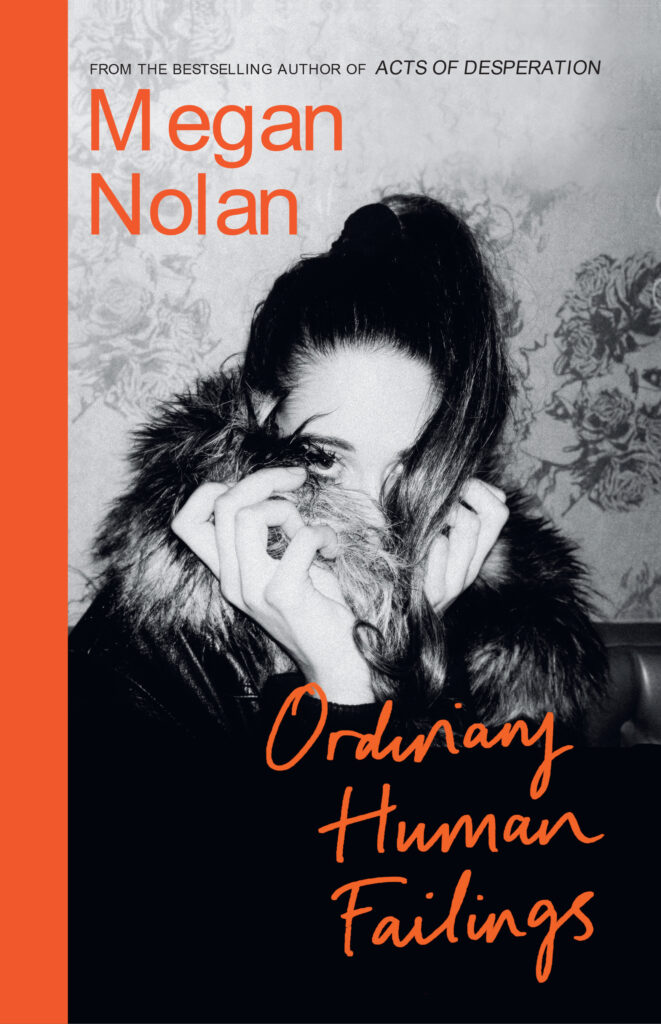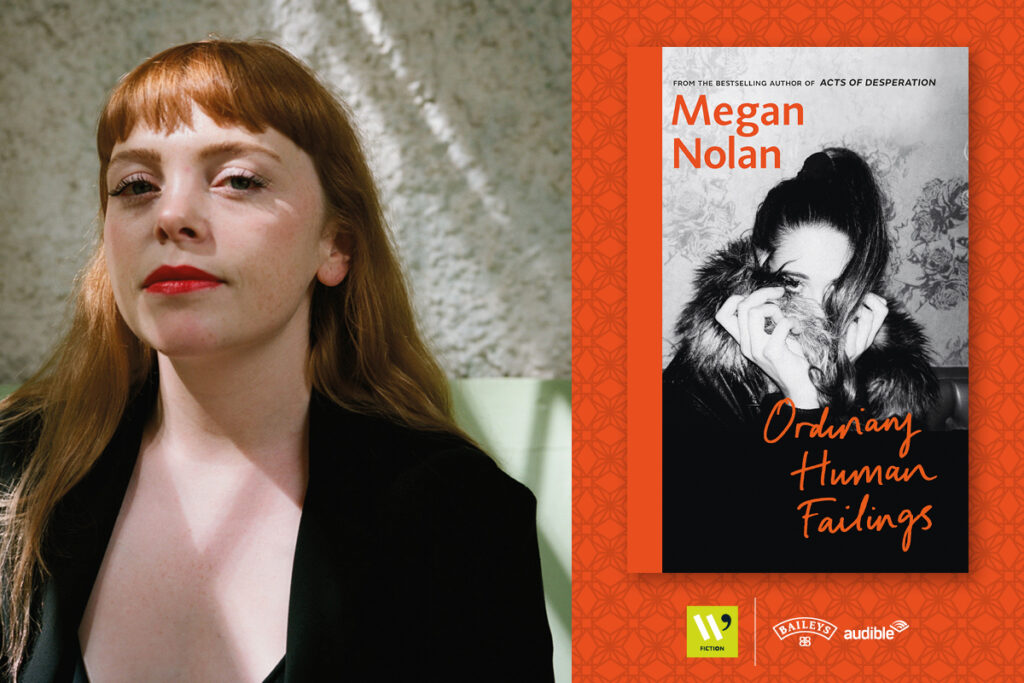Ordinary Human Failings by Megan Nolan follows Carmel who must confront the secrets and silences that have trapped her family for so many generations.
Ordinary Human Failings is ultimately a story of resilience, truth and doing whatever you need to to find it.
The insightful story of a family and the journalist who is trying to force a grisly murder tale out of them
Ayọb̀ ámi Adébáyọ̀

Describe your book in one sentence as if you were telling a friend.
Ordinary Human Failings is about an immoral tabloid journalist investigating a shocking crime, who sequesters the family of the suspect- a ten year old child- in a hotel, where their long-hidden secrets from one another begin to unravel.
What inspired you to write your novel?
I read in the Gordon Burn book Somebody’s Husband, Somebody’s son that the family of Peter Sutcliffe were approached by a journalist and offered booze and money to be kept as a source on tap in a hotel. I was struck by the image of a family all being kept together almost forcibly during a moment of extreme crisis; as I made my own fiction to encompass this inciting image I was able to fold in some longstanding interests of mine including classism in the British media, reproductive rights in Ireland, children who commit acts of violence, and intergenerational trauma.
Which part of the book was the most fun to write? Which was the most challenging?
Oddly they are sort of one and the same- there is a scene where Richie, an alcoholic in the early stages of his disease, breaks his will to be more moderate and has a reckless drinking session with old friends which begins as a moment of great joy and communion and as it goes on and darkens, becomes a pivotal incident of extreme shame and ruin in his life. I wanted to show how easily those two things can go hand in hand for people who struggle with drinking; it’s not as though everyone starts out sadly drinking vodka alone at noon, most people start out drinking because it helps them to feel close with others and it’s a relief from their ordinary mind and experiences, and because it’s simply fun. Writing the party was initially fun, thinking back to similar scenes growing up in Waterford, and then to write Richie’s subsequent sickening shame I found very upsetting and difficult.
If you could take one book to a desert island, what would it be and why?
I think for reasons of both nostalgia and entertainment it would be Of Human Bondage by Somerset Maugham, which was one of the first adult books I read as a child, one of those which are slightly too difficult for your range but therefore teach you and open up many new possibilities in both reading and writing. It tells the story of Philip, an orphan who suffers from a clubfoot, from his early childhood to his death, following his thwarted attempt to be an artist, his career as a doctor, and his miserable unrequited love affair with a woman who despises him. I think part of my love for it as an adult has to do with Philip’s attempts to have a non-normative life, attempts which finally he sets aside, conceding to instead embrace the more conventional patterns of life; “It might be that to surrender to happiness was to accept defeat, but it was a defeat better than many victories.” As someone who has typically resisted orthodox structures of education, love, work etc I am interested in questions like these, about how much happiness we should forego for freedom.
Where is your favourite place to write?
Bed, sadly, and always has been. I occasionally try to behave like a real person and forbid myself from it but I always go back to it when on a deadline. Second favourite is the London Library.
If you hadn’t been a writer, what would you be doing now? Where would you be?
I’ve always been interested in the law- I think if I’d been just a tiny bit more academically inclined I would have tried to study law, but one of the nice things about writing is that you get to be a dilettante and incorporate your interests.








